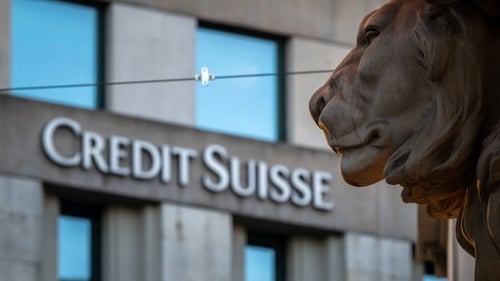Credit Suisse bailout triggers sharp decline in global bank shares.
2 min read
A 1.5% FTSE decline, driven by Asia and Europe, hit UBS with a notable 12% drop.
On Monday, London and European banking stocks declined despite UBS’s attempted rescue of Credit Suisse. The FTSE 100 in the UK dropped by 110 points, a 1.5% fall, driven by London-listed banks like Natwest, Barclays, and Standard Chartered, down over 7%. HSBC and Lloyds also experienced a 5% decline in early trading. The Stoxx Europe 600 Banks Index, measuring European banking shares, fell by 4% on Monday morning, with all major indices showing a decline. Credit Suisse’s shares plunged by 63%, while UBS saw a 12% drop
Francesco Pesole, an ING foreign-exchange strategist in London, observed that the UBS acquisition of Credit Suisse over the weekend failed to alleviate market sentiment. Consequently, investors are now turning their concerns towards the AT1 bond market.
In a collaborative effort on Sunday night, central banks, including the US Federal Reserve, Bank of Canada, Bank of England, Bank of Japan, European Central Bank, and Swiss National Bank, worked together to boost confidence. They agreed on measures to ensure that banks in Canada, Britain, Japan, Switzerland, and the eurozone would have an ample supply of US dollars for their operations. As part of this initiative, the central banks announced their commitment to increase liquidity by engaging in daily US dollar swaps. This marks a modest expansion of an existing program where the Fed exchanges dollars with other central banks each week in return for local currency.
Major London-based banks, deriving a substantial part of their revenue from Asia, faced a 7% and 5% decline in Hong Kong trading. Additionally, Bank of East Asia experienced a 3.5% drop. Consequently, Hong Kong’s Hang Seng Index saw a 2.6% decrease.



